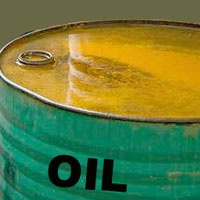Oil surplus rises to record 3 bn barrels
16 Nov 2015
Oil inventory held by developed nations rose to a record 3 billion barrels in September, and is likely to continue into coming months, keeping the downward pressure on prices, according to the November oil market report released by the International Energy Agency (IEA).
 The pace of global stock-building slowed in the third quarter to 1.6 million barrels per day (mbpd) from 2.3 mbpd in the second quarter but remained significantly above the historical average.
The pace of global stock-building slowed in the third quarter to 1.6 million barrels per day (mbpd) from 2.3 mbpd in the second quarter but remained significantly above the historical average.
''This massive cushion has inflated even as the global oil market adjusts to $50 per barrel. Demand growth has risen to a five-year high of nearly two million barrels per day," the agency said. "Gains in demand have been outpaced by vigorous production from OPEC and resilient non-OPEC supply."
The global demand growth is expected to cool down to 1.2 mbpd in 2016 from a five-year high of 1.8 mbpd this year, it said.
Global supplies, which were about 97 mbpd in October, is forecast to contract by more than 0.6 mbpd next year as US shale oil output likely to decline, while the Organisation of the Petroleum Exporting Nations (OPEC) is expected to maintain production of around 31.3 mbpd, slightly lower than its October output of 31.4 mbpd.
Crude oil prices have plunged nearly 60 per cent from their June 2014 highs of over $110 a barrel of Brent to $44.47 on Friday, indicating renewed weakness in the past ten days by falling around 14 per cent due to oversupply.
IEA executive director Fatih Birol said, "Now is not the time to relax. Quite the opposite: a period of low oil prices is the moment to reinforce our capacity to deal with future energy security threats."
In its World Energy Outlook released last week, IEA said that an extended period of lower oil prices would benefit consumers but would trigger energy-security concerns by heightening reliance on a small number of low-cost producers, or risk a sharp rebound in price if investment falls short.
By 2040, China's net oil imports are nearly five times those of the United States, while India's easily exceed those of the European Union.
The IEA said last month that China and India are moving to the centre stage of global energy system. (See: IEA wants China, India to be active members of global energy system)
The oil report as well as an economic slowdown in the euro zone, which posted a lackluster 0.3-per cent growth in the third quarter, pushed the global stock indices down on Friday.
London's FTSE100 fell 1 per cent while Nasdaq dropped 1.6 per cent and Hong Kong's Hang Seng index slid 2.2 per cent, Shanghai 1.4 per cent and Nikkei 225 0.5 per cent.
According to OPEC, which has been exceeding its own targets during the past year, stock levels in developed economies are 210 million barrels above their five-year average, exceeding the 180 million barrels surplus developed in early 2009.



















